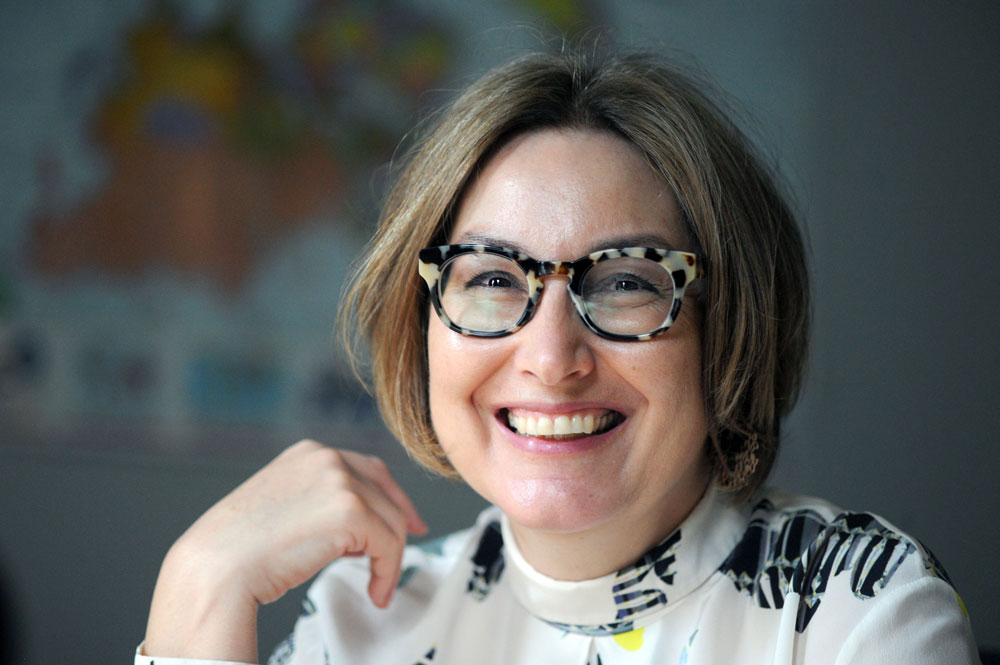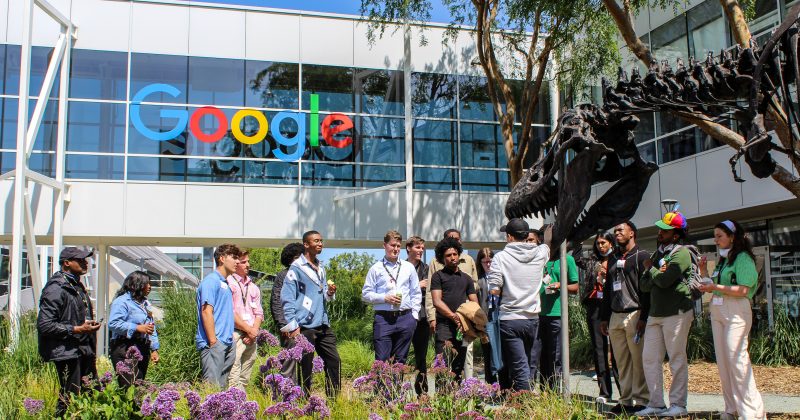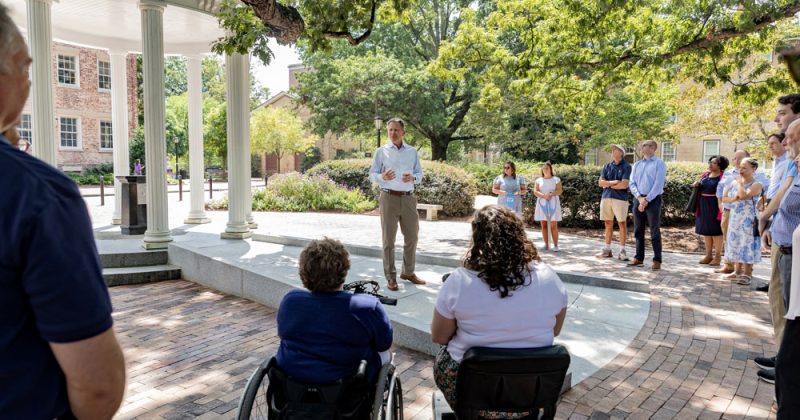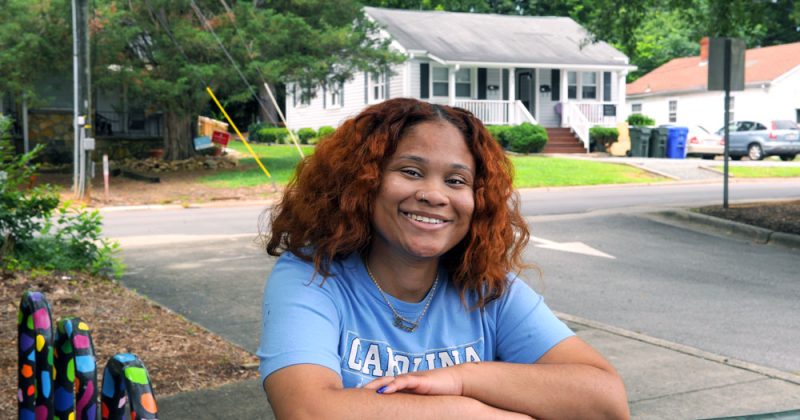
In her work, geographer Banu Gökarıksel emphasizes building connections “across borders of race, gender and class.” (photo by Donn Young)
Political geographer Banu Gökarıksel directs Carolina’s popular curriculum in global studies while exploring her own research about global and local belonging.
Growing up in Turkey during an era of vast social and economic policy shifts, Banu Gökarıksel became fascinated by the impact of these changes.
After majoring in economics as an undergraduate at Istanbul’s Boğaziçi University and earning a master’s degree in sociology/cultural anthropology from the same institution, she became interested in borders and boundaries — beginning with how public spaces, such as shopping malls, affect people’s lives and sense of belonging.
“I’ve always been interested in big questions about identity and politics, particularly in terms of how policy impacts individuals — who gets marginalized and how ordinary people contribute to those tensions,” said Gökarıksel, a professor of geography and global studies. Her passion for these topics led her to the University of Washington, where she earned a doctorate in political and cultural geography. Since joining the Carolina faculty in 2005, she has been lauded for her work, including receiving a Chapman Family Teaching Award from UNC and an Enhancing Diversity Award from the American Association of Geographers.
Gökarıksel’s research has focused on feminist political and cultural geographies in her home country, where she has examined how being a Muslim woman and wearing a hijab have been “a highly contested geopolitical issue.”
Gökarıksel has explored politics through relationships between neighbors and how tensions can come to a head when people with different beliefs live close to one another, an issue that resonates globally and locally. “That work is grounded in Turkey, but whenever I speak about my project about homes and neighborhoods as the location of political tensions, it resonates with people in the United States, too,” she said.
Her wide range of inquiry includes a new project in the Tar Heel State. She recently embarked on “Refugee Resettlement in North Carolina,” which examines the role of volunteering and community sponsorship as Afghans, Syrians, Ukrainians and other refugees arrive in the state. The project explores what motivates people to work with refugees and how they navigate differences in religion, race, culture and gender.
As chair of the curriculum in global studies, Gökarıksel also leads the only Carolina degree program with an explicitly global focus. She describes the nearly 400 undergraduates in the popular major as highly motivated and diverse students. The graduate program, launched in 2014, has about 30 students each year. The global studies alumni network includes more than 4,000 people across a wide range of careers.
“UNC global studies students learn about the critical and comparative insights offered through contact with other people and places,” she said. “I’m excited to help generate spaces for interdisciplinary conversation and collaboration with my global studies colleagues, who come from more than 10 departments.”
Gökarıksel advocates for global studies to engage in the most recent scholarship and research.
“We are thinking about the history of global studies and its roots, which are very much in asymmetric hierarchies of colonialism,” she said. “We are engaging in anti-racist and de-colonial theories and the works of feminists so we can expand the intellectual borders of the field.”
She added that global studies is a crucial field in the political interventions that define the current moment.
“Many of the issues affecting the world today, such as climate change and migration, can only be understood and addressed from a global perspective,” Gökarıksel said. “It is necessary for us to learn from one another and create connections instead of treating problems in a limited, nationalistic way.”
Gökarıksel said she views her work in academia as a community-building endeavor.
“What I really emphasize is being open and building a network of colleagues and students who value connections across borders of race, gender and class,” she said.
By Michele Lynn
Published in the Fall 2023 issue | Faculty Up Close, Tar Heels Up Close
Read More

Carolina to California
In the “Silicon Revolution” Maymester course, undergraduate students with a passion for…



